CoMAT – Country Methane Abatement Tool
CoMAT is a software tool designed to make it easier for countries and regulators to estimate their methane emissions from the oil and gas industry and develop comprehensive mitigation plans and policy strategies.
The Methane Challenge
Methane is a powerful greenhouse gas responsible for about 30% of the rise in global temperatures.
With emissions that are 80x more damaging than carbon dioxide in the short term, reducing methane pollution is the fastest way to slow global warming and avoid near-term and irreversible impacts to our planet.
Methane emissions primarily come from three sectors: fossil fuels (e.g. oil, gas, and coal), agriculture, and waste. There are readily available solutions to reduce methane emissions from all three of these sectors. Using currently available technologies, methane emissions could be cut by at least 45% by 2030.
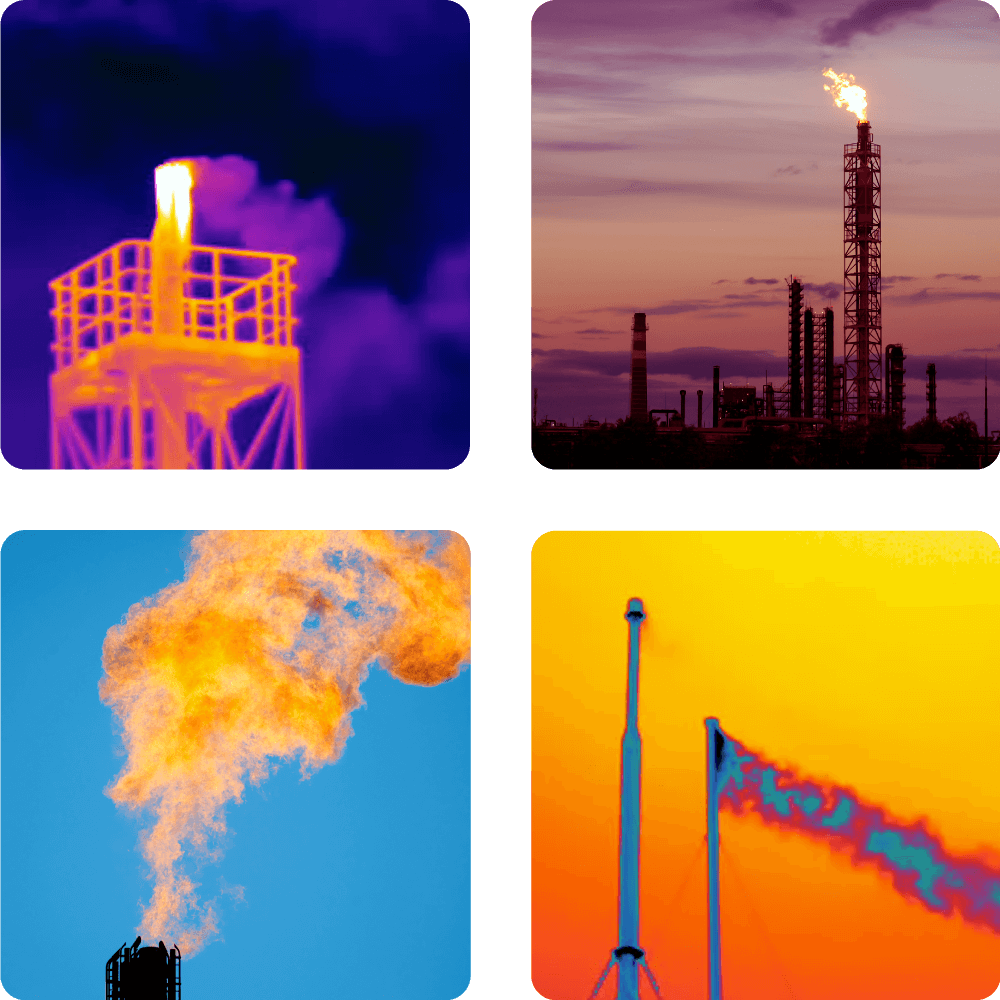
Hidden methane emissions detected by Clean Air Task Force experts using an optical gas imaging camera
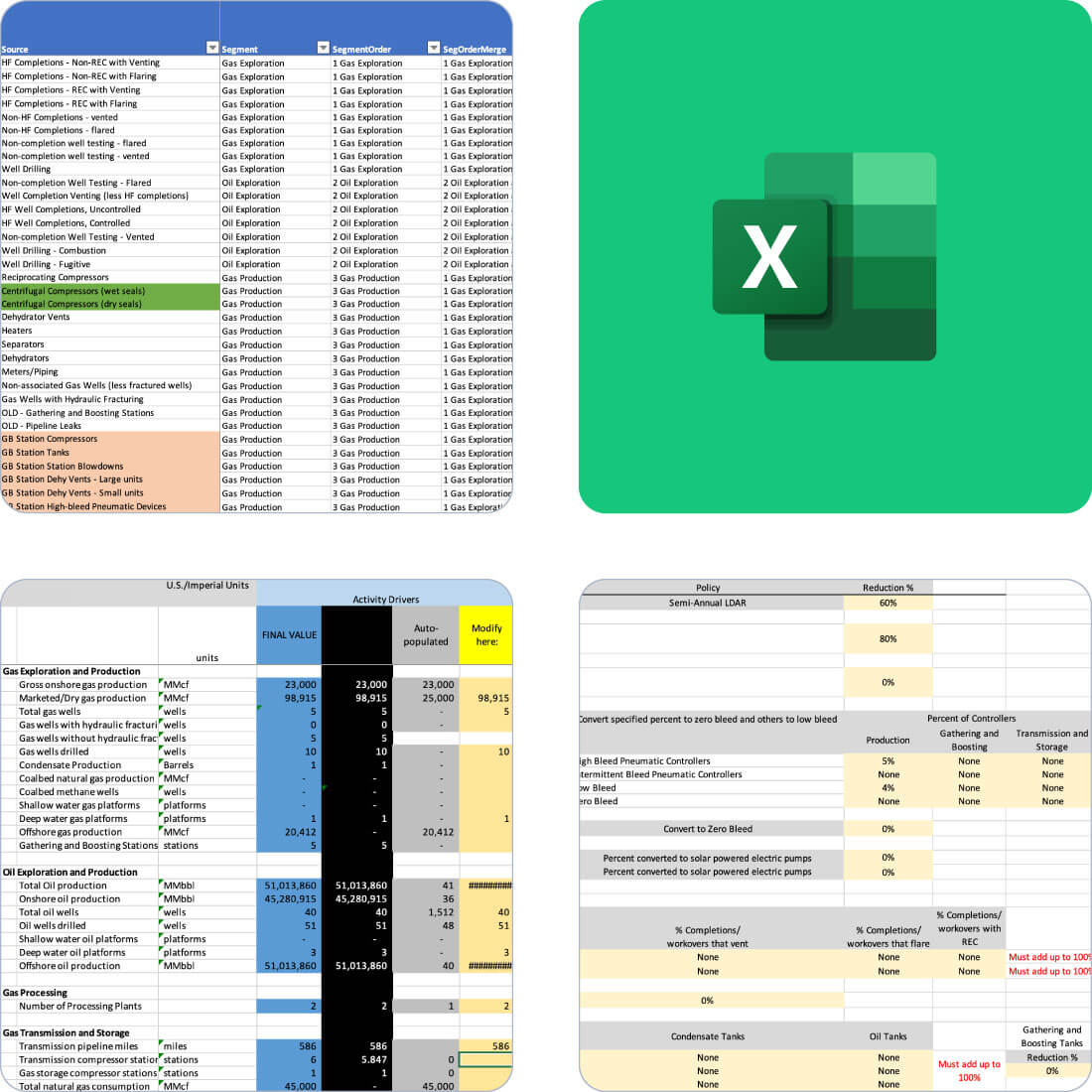
The Project
Designing and implementing policies and regulatory standards requires a detailed understanding of methane emissions sources and reduction potential. The process of compiling, analyzing, and verifying this information can be a significant barrier.
Our clients at Clean Air Task Force developed the Country Methane Abatement Tool – a complex spreadsheet designed for countries and national oil companies to assess their current methane emissions and inform their mitigation strategies. In addition, their team has compiled a detailed catalog of best practices, methane policies and regulations from around the world into a Compendium document that can support the creation of country specific mitigation plans. While the original spreadsheet-based solution for COMAT was impressive, it was inherently complex, not easy to use, maintain or scale across multiple country engagements.
Our approach: Integrate the policy compendium and data spreadsheet into a digital platform
This software tool needed to be intuitive, accessible, optimized and streamlined to make it easier for users to see in real-time their mitigation potential and the impact of activating strong policy and regulatory standards. Extensive research and testing was conducted around functionality and user experience, followed by rigorous data analysis and solution design that included the development of visual dashboards and fields for data evaluation paired with a digitized policy library allowing users to develop comprehensive and policy-informed mitigation approaches. The new app version was designed to allow users to collaborate transparently and engage in productive conversations with agency partners and government stakeholders interested in reducing emissions by applying best practices and policy actions from across the world to achieve their country’s ambitious climate goals.

Say hello to CoMAT
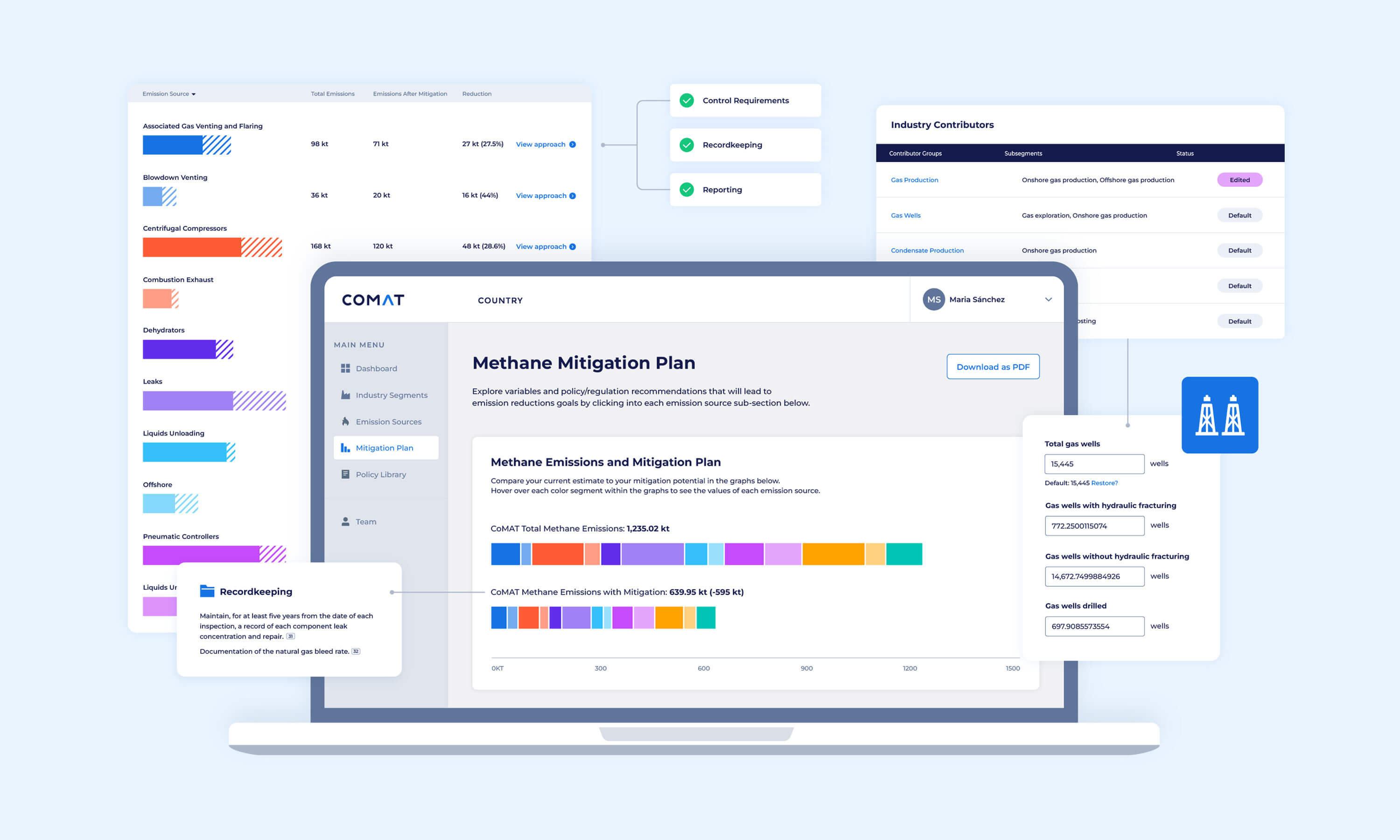
CoMAT is a data-driven, expert-guided, collaboration platform designed to support the emissions reduction through estimations, learning, consensus building, solution design and climate-forward policy development.
The software is free, intuitive and easy to use by any country, making a complex problem more accessible, efficient and organized. The tool includes supportive information and resources as a built-in function to help users understand the formulas behind the tool’s default values, gain access to a comprehensive policy library catalog with vetted methane reduction policies, explore scenarios and emissions assessment functionalities allowing users to produce mitigation approaches and plans that best reflect their country’s abatement potential and opportunities for more action.
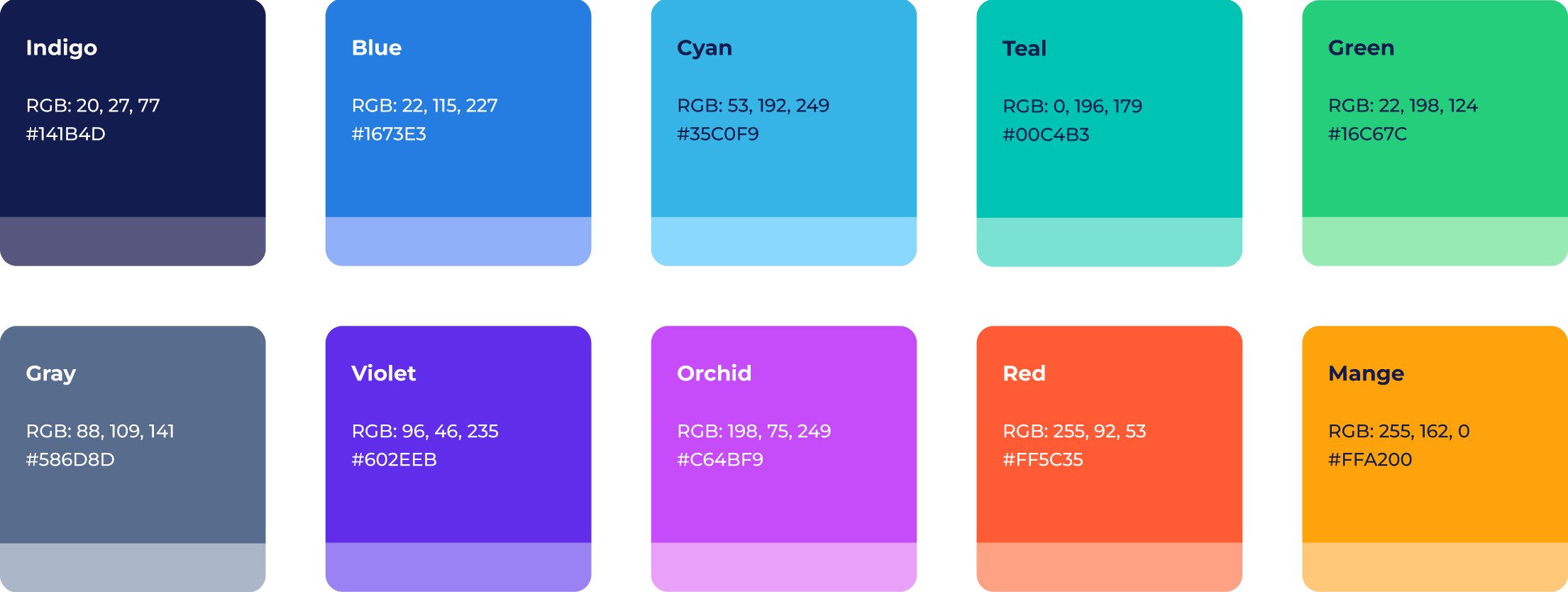
Turning pledges into action
Because the new CoMAT app offers an easy-to-use, unique mix of data-gathering, reporting, engagement and policy design tools, users are able to gain insights, analyze data, build consensus and develop mitigation plans and policy solutions that lead to tangible actions. Across the globe, 155 countries have signed the Global Methane Pledge to reduce emissions at least 30% from 2020 levels by 2030.
With no time to waste, CoMAT can help countries, governments and NGOs turn their pledges into meaningful, bold action to protect the planet from the worst impacts of climate change.
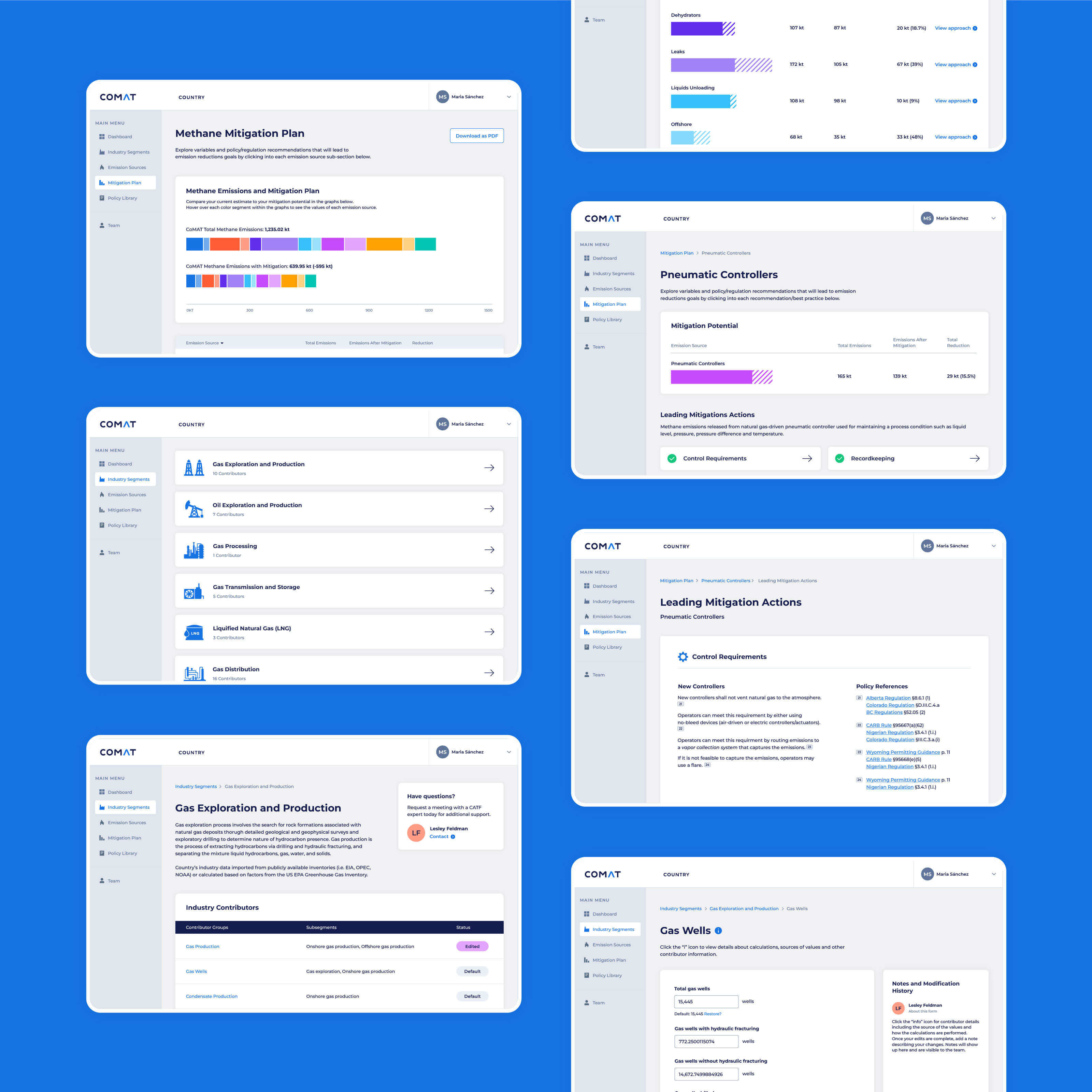
Next Project:
Clean Air Task Force Awareness Campaign